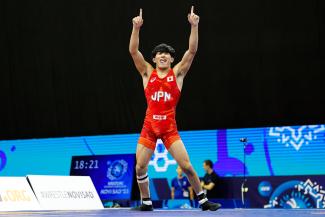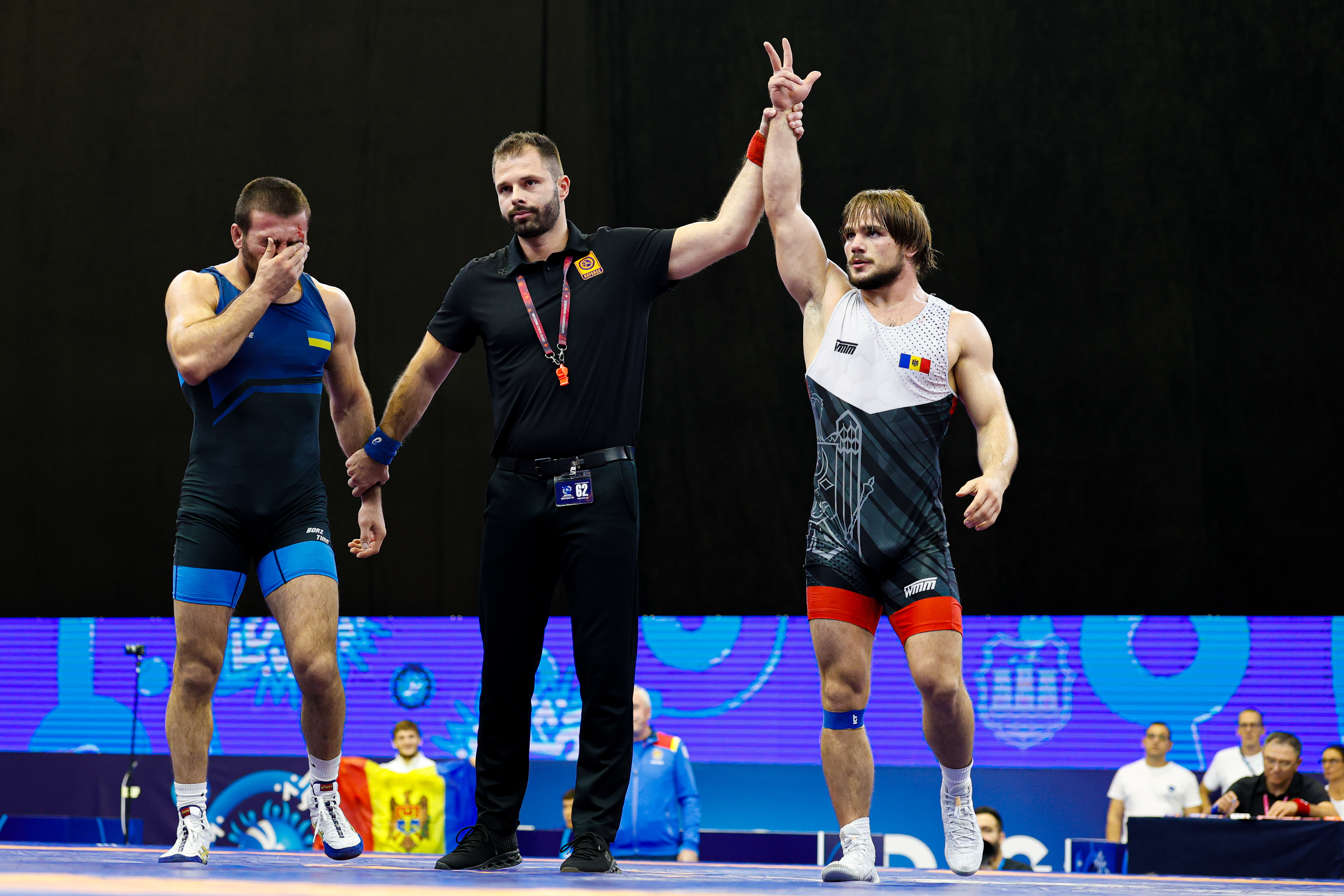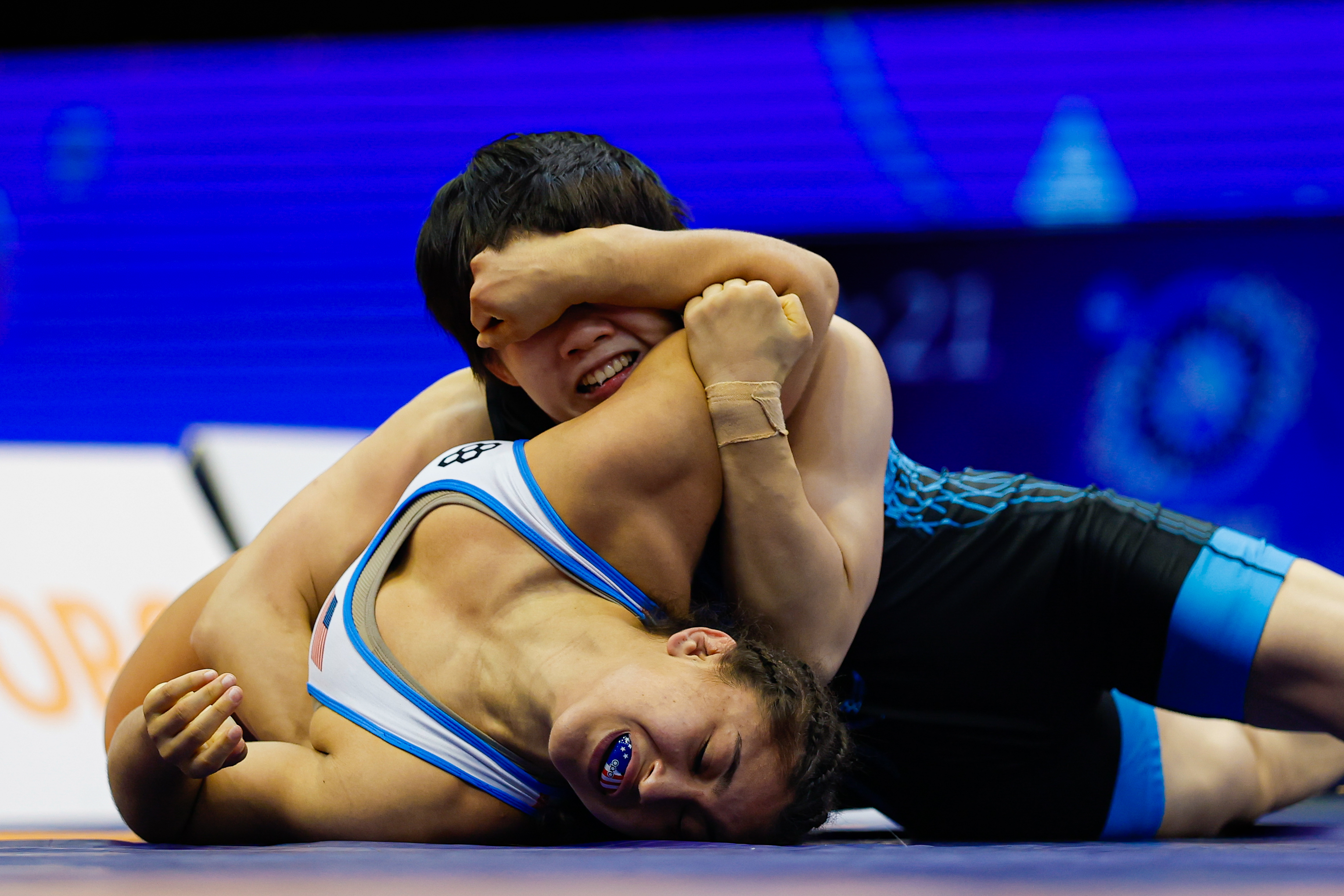Gender Equality, WW Development UWW's Focus Through '24 Paris Games
Monday, March 7, 2022 - 19:01 By United World Wrestling Press

CORSIER-SUR-VEVEY, Switzerland (March 8) -- United World Wrestling continues to make significant efforts to lift the standard of women's wrestling around the world -- not only on the mat, but off the mat as well.
One of the biggest testimonies to those efforts was UWW Bureau member ZHANG Xia being awarded the International Olympic Committee's Women in Sport Award as she strives to provide more opportunities to lift women wrestlers and referees.
A part of UWW's five-year strategic plan, women's wrestling is one of the main aspects with an aim to achieve gender equality. The UWW Gender Equality Development Programme represents recognition, encouragement, and empowerment for the individuals and the National Federations of UWW.
Each year, the program is awarded a project or organization that contributes to the development and is committed to tackling gender biases and inequalities in wrestling, in such areas as participation of girls in wrestling, elite-level women’s wrestling development, a coaching program for women [WSLA] and development of women referees and women in leadership.
Another high-level highlighting women in the sport was the '21-'22 The Women Lead Sport Programme, which featured 40 participants -- 95% women – from five different continents.
The objectives of the Women Lead Sports Master Program were to empower participants to shape the future of wrestling as a global sport, increase a diverse talent pool in leadership within UWW at all levels, and to learn effective leadership strategies, techniques, and applicable tactics that work today.
Women Lead Sports Master Program Topics:
- Personal Power and Influence
- Stakeholder management and use of skills navigating politics
- Self-awareness of personal leadership style, areas of development and strengths
- Communication and Persuasion skills
- Negotiation skills
- Networking, sponsoring, mentoring, and lobbying skills
- Self-confidence, courage and assertiveness
- Sport Electoral year and best practices
- Leading in male-dominated environments with success and authenticity.
UWW also renewed the Women in Sport Leadership Programme for five female coaches in collaboration with OS 2022-2024. Like for Tokyo Games, UWW has come up with a dedicated program for the promotion of women referees up to Paris Olympics 2024 with the first major event being the Commonwealth Games 2022 in Birmingham, England.
UWW also had two recipients of the World Academy of Sports Post Graduate program from Gambia and Australia.
Technical Assistance
In 2021, despite the barriers and challenges caused by the COVID-19 pandemic, UWW continued to support the National Federations in various forms especially to increase more participation of women in wrestling.
One of the biggest courses held was in Saudi Arabia, which hosted the UWW Women’s Coaching Course. Women from different provinces of Saudi Arabia participated in the UWW Technical Course for Coaches – Introduction to Coaching and Safety from December 5-9, 2021 in the Green Hall, Ministry of Sport, Riyadh. This course was organized by the Saudi Arabian Wrestling Federation and supported by the Leaders Development Institute.
UWW has continued to put focus on gender equality and as a result, the 2021 Women Lead Sports Master Programme was organized. It is a biannual program that promotes gender equality and empowers women in wrestling has been organized.
Due to the pandemic, the program was carried out virtually over two sessions on November 29 and December 6 with Q&A and Graduation/Certificates sessions in January 2022. With the 2024 Paris Games in mind, the program continues to be held every two years since 2017.
Regarding the technical assistance of wrestlers and coaches, UWW assisted a total of 79 athletes and 39 coaches from 44 countries on the five continents in participating in the Tokyo Olympic Qualifiers.
Women wrestlers constituted 18 percent of the total beneficiaries and one of the wrestlers -- Bolortuya BAT OCHIR (MGL) -- qualified for the Tokyo Games and even won a bronze medal.
For World Championships in Oslo in 2021 and 54 athletes and 25 coaches were approved for support and women wrestlers achieved the most noticeable results. Among all the teams that benefited from Technical Assistance, the following athletes finished in the top five.
Samar HAMZA (EGY) -- 76kg bronze
MELENDRES Luisa VALVERDE (ECU) -- 53kg 5th
Lais NUNES DE OLIVEIRA (BRA) -- 62kg 5th
A 50 percent membership for women was achieved in the Athletes Commission. The election for the commission for the term 2021-2025 was held in Oslo during the World Championships. While two seats were pre-empted for women wrestlers, three were selected to the seven-member committee.


 Alexandrin GUTU (MDA) won the 82kg final in Novi Sad. (Photo: United World Wrestling / Kostadin Andonov)
Alexandrin GUTU (MDA) won the 82kg final in Novi Sad. (Photo: United World Wrestling / Kostadin Andonov) Jinyue LIANG (CHN) tries to pin Audrey JIMENEZ (USA) in the 50kg final. (Photo: United World Wrestling / Kostadin Andonov)
Jinyue LIANG (CHN) tries to pin Audrey JIMENEZ (USA) in the 50kg final. (Photo: United World Wrestling / Kostadin Andonov)
Share your thoughts.
Comments